-
Introduction to Planetary Protection
Learn more to access more details of Introduction to Planetary ProtectionAs we explore the Solar System, it is important that we do not accidentally contaminate untouched and unspoilt extraterrestrial environments in any way. In this free course you will learn about ‘Planetary Protection’ and why it is critical for our future exploration and use of space. This course has been developed with support from the ...

-
Europa: a collection
Read now to access more details of Europa: a collectionJupiter’s moon Europa is the target of several exploration missions that will be sending data back to Earth over the coming years. Find out more about this moon and what these missions are investigating by reading our free articles, courses and other resources.

-
What is Planetary Protection?
Read now to access more details of What is Planetary Protection?As we explore the Solar System, it is important that we do not accidentally contaminate untouched and unspoilt extraterrestrial environments in any way. This is especially true when searching for evidence of life. This article explores the concept of ‘Planetary Protection’ and why it is critical for the future of space exploration.
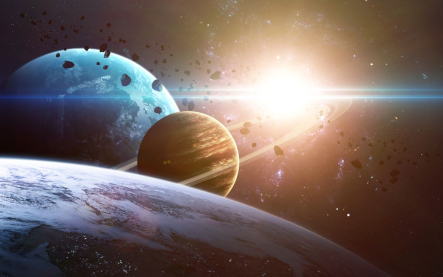
-
Planetary Protection of Icy Worlds
Read now to access more details of Planetary Protection of Icy WorldsAs our understanding of life and its potential beyond Earth improves, attention is moving towards smaller bodies, including moons and dwarf planets in the outer regions of our Solar System. But how can we strike a balance between exploring these new worlds and ensuring they remain unspoilt?
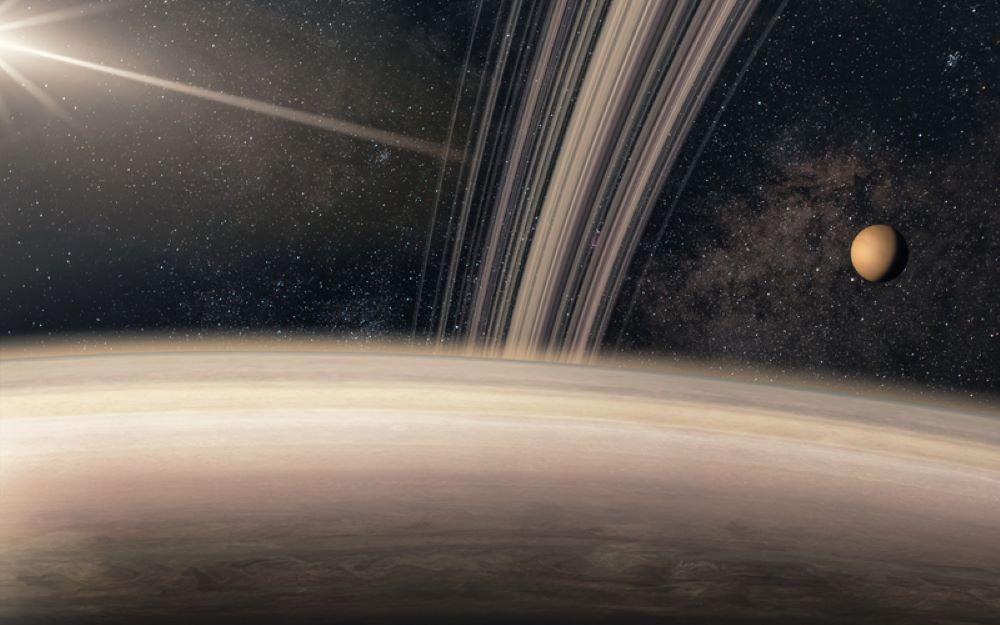
-
Planetary Protection of Mars
Read now to access more details of Planetary Protection of MarsMars continues to be at the forefront of international space exploration programmes, but as plans to bring samples back from the red planet and perhaps even send humans there edge closer, how can we ensure we do not contaminate the very environment we’re interested in understanding more about?
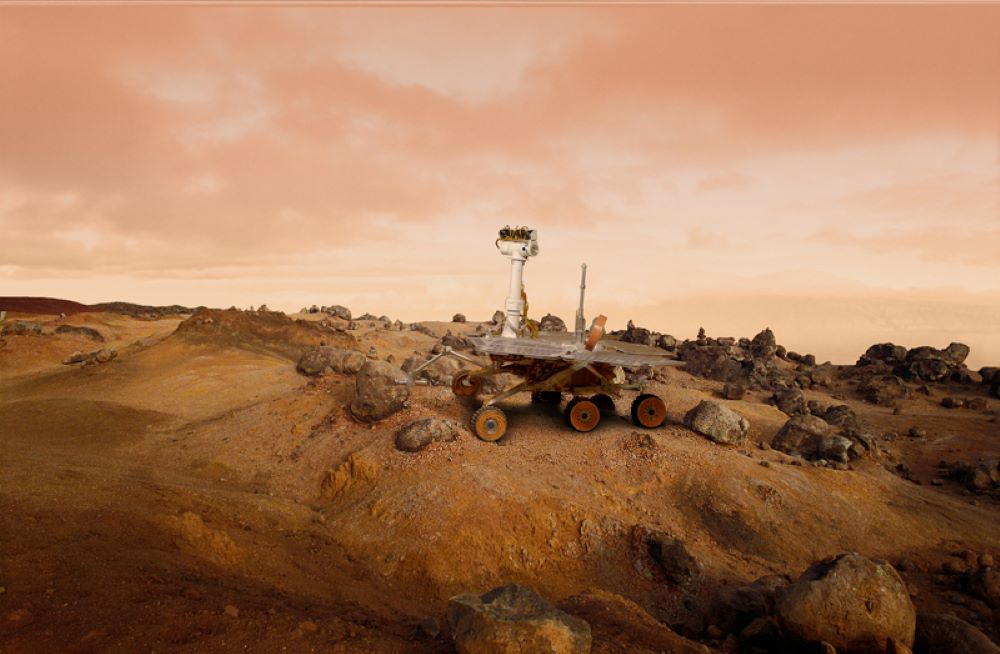
-
Planetary Protection
Read now to access more details of Planetary ProtectionProtecting the space environment is becoming ever more critical so we’ve collated some FREE resources on protecting planetary bodies as humans explore extraterrestrial environments.

-
Space: to boldly, but cautiously, go.
Take part now to access more details of Space: to boldly, but cautiously, go.Space exploration is full of possibilities, especially when searching for signs of life. But the reality is complex. What lies behind the many decisions that have to be taken to design and run a space exploration mission?

-
A new mission to the icy moons of Jupiter
Read now to access more details of A new mission to the icy moons of JupiterIn April 2023, the European Space Agency launched the JUICE (JUpiter ICy Moons Explorer) mission. JUICE will explore the environment around Jupiter and study its three icy moons (Ganymede, Europa and Callisto). Could moons like these, orbiting giant gas planets, be habitable?
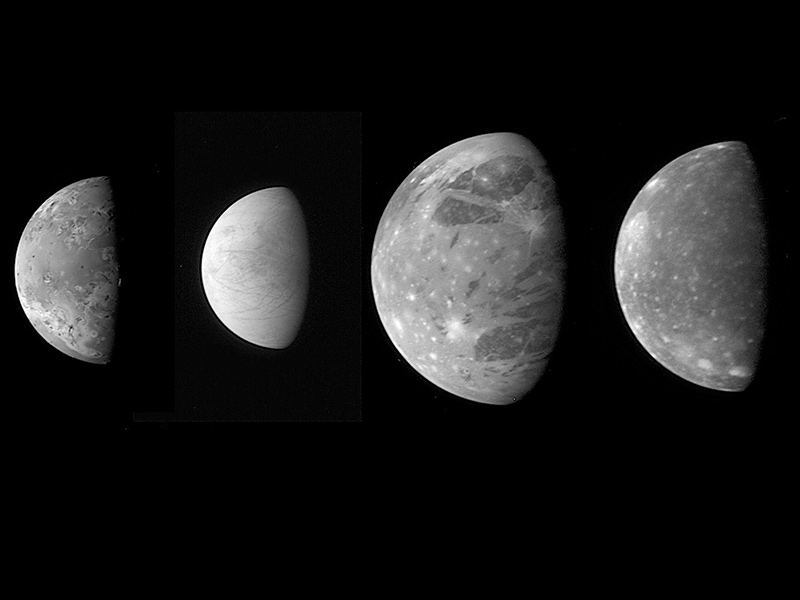
-
Between humanity and space
Read now to access more details of Between humanity and spaceDr Natalie Trevino recently joined AstrobiologyOU at the Open University as a post-doctoral researcher in space ethics. Her research considers the future of space exploration and the relationship of humans and space. She reflected on how she came to AstrobiologyOU and her plans for future work, in conversation with Ann Grand, a fellow member of ...

-
From Astrobiology to Parliament
Read now to access more details of From Astrobiology to ParliamentDevyani Gajjar is a PhD student with AstrobiologyOU. Her research focuses on how space technologies could be used to support social justice and inclusive innovation. However, in spring 2022, she put her PhD on pause while she undertook a three-month-long fellowship with the Parliamentary Office of Science and Technology (POST). In this article, ...

-
Modelling the planets
Read now to access more details of Modelling the planetsDr Julia Semprich is a Research Fellow with AstrobiologyOU. She is interested in the processes that occur deep below the surface of planets and how the interactions of fluids and rocks might create habitable environments. She talked with Dr Ann Grand, Senior Lecturer in Astrobiology Education, about her route to astrobiology, her current ...

-
Sniffing out signs of life
Read now to access more details of Sniffing out signs of lifeVolatile Organic Compounds (VOCs), which are produced through industrial processes and by living things, are found everywhere in our daily lives. Could the presence of VOCs be used to show where life might exist, or might have existed, on Earth and other planetary bodies?

-
Supporting sustainable and responsible space exploration
Read now to access more details of Supporting sustainable and responsible space explorationSilvio Sinibaldi explores some of the current challenges and opportunities in planetary protection.

-
What do scientists really do? My experience interviewing researchers
Watch now to access more details of What do scientists really do? My experience interviewing researchersInka Maskiewicz, a Year 11 student, interviews scientists at AstrobiologyOU and the School of Physical Sciences at The Open University. These videos explain what they research and do at the university...

-
The ice-covered ocean worlds of the outer Solar System
Read now to access more details of The ice-covered ocean worlds of the outer Solar SystemWhat do we know about Jupiter's and Saturn's icy moons? Could there be life on them? This article explores what previous missions can tell us and what future missions hope to find out.

-
Life Beyond Earth: The Big Debate
Watch now to access more details of Life Beyond Earth: The Big DebateA panel of Open University experts go head-to-head to debate whether life is more likely on Mars or on the icy moons of the gas planets.

-
The role of business development in AstrobiologyOU
Read now to access more details of The role of business development in AstrobiologyOUAnn Grand, Lecturer in Astrobiology Education, talked with Yiannis Tsamis, Business Development Manager, about the role of business development in AstrobiologyOU.

-
Exploring the icy moons
Read now to access more details of Exploring the icy moonsMark Fox-Powell is a Research Fellow in AstrobiologyOU. His research focuses on the potential habitability of the deep oceans of the ice-covered moons of the outer solar system. He discussed his career path and work with Ann Grand, Lecturer in Astrobiology Education.
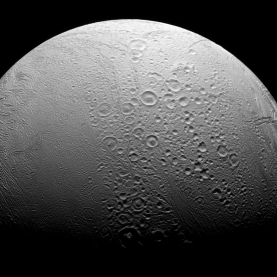
-
Astrobiology from the ground up
Read now to access more details of Astrobiology from the ground upAnn Grand, Lecturer in Astrobiology Education, interviews Shonil Bhagwat, Professor of Environment and Development, on the intersections between his work on environment and international development and astrobiology.

-
The search for water on Mars
Learn more to access more details of The search for water on MarsThe possibility of water on Mars has captured human imagination for over a century. In this free course, The Search for Water on Mars, find out more about how scientists have found evidence for water in the red planet’s past and present, and what this might mean for the possibility of life beyond Earth.

-
Planetary Protection: Space Governance and the Search for Life
Read now to access more details of Planetary Protection: Space Governance and the Search for LifeWhat is planetary protection? This article explores the policies and legislative action of forwards and backwards contamination.

-
Diary of a Mars operations day
Read now to access more details of Diary of a Mars operations dayDr Susanne P. Schwenzer outlines a day in the life of the operations team for the Mars rover, Curiosity.

-
What can Earth tell us about Mars?
Read now to access more details of What can Earth tell us about Mars?As NASA’s Perseverance rover gears up for its mission to collect and test rock samples from the Jezero Crater on Mars, Michael Macey talks about his work, what got him started in this area of research and where he hopes it will go with Ann Grand (Lecturer in Astrobiology Education).

-
Enceladus: A habitable ice world?
Read now to access more details of Enceladus: A habitable ice world?Is it possible that Enceladus, one of the moons of Saturn, could potentially host life? Grace Richards, a PhD student at The Open University, explores...
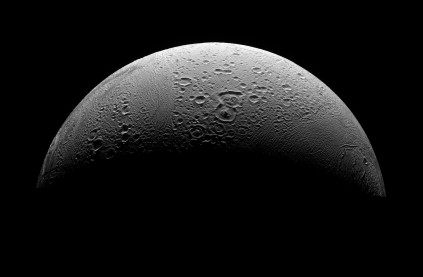
-
Is there life on Mars?
Read now to access more details of Is there life on Mars?Mars is often depicted as an inhospitable world, but is this true? Mario Toubes-Rodrigo, a PhD student at The Open University, explores...

-
Europa: Jupiter’s ocean world
Read now to access more details of Europa: Jupiter’s ocean worldIn the coming years, Jupiter’s moon Europa will be a focus for planetary exploration because of the tantalising possibility that it might harbour life. This article introduces you to this enigmatic moon and why space scientists and astrobiologists are excited about exploring it further.

-
The ocean of Jupiter’s moon Europa
Read now to access more details of The ocean of Jupiter’s moon EuropaAt over 3100 kilometres across, Europa is the fourth largest moon of Jupiter and the sixth largest moon in our Solar System, rivalling the size of Earth’s moon. Of interest to many scientists, space enthusiasts and science fiction authors is the potential for a vast, global ocean to exist below Europa’s outer icy shell; but why do we think there...

-
Europa’s icy shell
Read now to access more details of Europa’s icy shellJupiter’s moon Europa has a distinctive icy surface, with a network of cracks, ridges and chaotic terrain. These features are formed by powerful gravitational forces from Jupiter that reshape the moon’s landscape and offer clues about its geological activity. This article explains these features and the processes that underpin them.

-
Exploring Europa
Read now to access more details of Exploring EuropaWe are at the beginning of an exciting new phase of Solar System exploration, in which Jupiter’s enigmatic ocean moon Europa will be front and centre. Here we look at what two upcoming missions hope to achieve and why this is important for space scientists and astrobiologists.

-
Is there life on Europa?
Read now to access more details of Is there life on Europa?The potential for an ocean on Jupiter’s moon Europa opens up the possibilities of it being habitable for life. With missions due to visit the moon in the coming decade, it is an exciting time for astrobiologists. This article explores why Europa might be a target in the search for life, and what the potential might be of finding it there.

-
Can Space Technologies solve the Sustainable Development Goals?
Read now to access more details of Can Space Technologies solve the Sustainable Development Goals?How can scientific and technological innovations solve global problems, and how can they be used inclusively? Devyani Gajjar explores…

-
Phobos – an asteroid masquerading as a moon of Mars?
Read now to access more details of Phobos – an asteroid masquerading as a moon of Mars?Zoe Morland, a PhD student in The School of Physical Sciences, looks at Phobos - one of Mars' moons and how space agencies are going to investigate its composition.

-
Dr Manish Patel and Dr Stephen Lewis on landing on Mars
Watch now to access more details of Dr Manish Patel and Dr Stephen Lewis on landing on MarsThe ExoMars Trace Gas Orbiter is about to land on the red planet. In this short video, our OU academics explain their role in the remarkable mission.

-
60 Second Adventures In Astronomy: Life on Mars
Watch now to access more details of 60 Second Adventures In Astronomy: Life on MarsDiscover how asteroids and microbes flying through space could hold the secret to life on Earth - and maybe even Mars

-
What missing lander means for Europe’s quest to find life on Mars
Read now to access more details of What missing lander means for Europe’s quest to find life on MarsLoss of the Mars lander from its recent probe is disappointing, but the search for life on Mars goes on.

-
As Cassini reaches the end, we should prepare the next mission
Read now to access more details of As Cassini reaches the end, we should prepare the next missionWhat Cassini taught us about Saturn's moons is a start. We look back at its amazing journey, and Monica Grady argues we should now be thinking about sending the next probe.

-
What do volcanoes tell us about the possibility of life on Mars?
Read now to access more details of What do volcanoes tell us about the possibility of life on Mars?Discoveries of volcanoes on the surface of the Red Planet suggests that life could once have been supported there. Dave Rothery explains how.

-
What do we know about the seven Earth-like planets?
Read now to access more details of What do we know about the seven Earth-like planets?Yesterday, space scientists announced the discovery of a star that is being orbited by seven Earth-like planets. Here's Dave Rothery with what you need to know.

-
Dr Matt Balme on modelling the landscape of Mars
Watch now to access more details of Dr Matt Balme on modelling the landscape of MarsIn this three minute video, Dr Matt Balme in The Open University's Space Science research priority area, gives us a tour of his laboratory and shows how he models the landscape of Mars.

-
Live long and prosper?
Read now to access more details of Live long and prosper?How can the crew of the Enterprise walk around and breathe on any planet they encounter?

-
Icy bodies: Europa and elsewhere
Learn more to access more details of Icy bodies: Europa and elsewhereThe new discipline of astrobiology that is, the science of searching for extraterrestrial life, is not only rapidly growing, but has also captured the public imagination. This free course, Icy bodies: Europa and elsewhere, examines the emergence of icy satellites of distant planets as potential sites of extraterrestrial life, looks at the ...

-
An introduction to exoplanets
Learn more to access more details of An introduction to exoplanetsThis free course, An introduction to exoplanets, introduces our galaxy's population of planets, and some of their many surprises. It explains the methods used by astronomers to study exoplanets, and provides a general introduction to the methods of scientific inquiry. The course culminates in discussion of life elsewhere in our Galaxy.

-
Moons of our Solar System
Learn more to access more details of Moons of our Solar SystemIn this free course, Moons of our Solar System, explore the many moons of our Solar System. Find out what makes them special. Should we send humans to our Moon again?

-
The Borders of Astrobiology
Read now to access more details of The Borders of AstrobiologyEthical questions in space exploration, issues of ethical engagement and knowledge production in astrobiology, and extending concepts of environmental ethics to outer space are explored in this article.
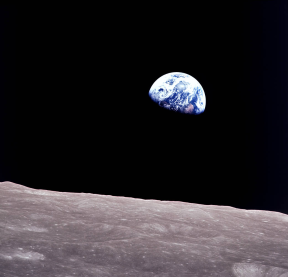
You can find out more about Astrobiology at The Open University on the AstrobiologyOU website.

Rate and Review
Rate this article
Review this article
Log into OpenLearn to leave reviews and join in the conversation.
Article reviews